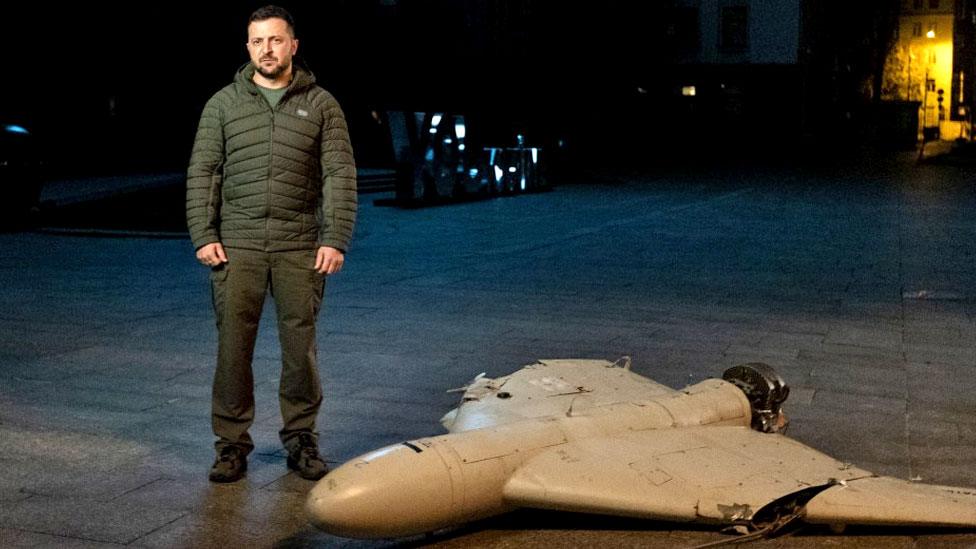Ukraine round-up: Kherson civilians moved, German regrets and Chechen losses
- Published
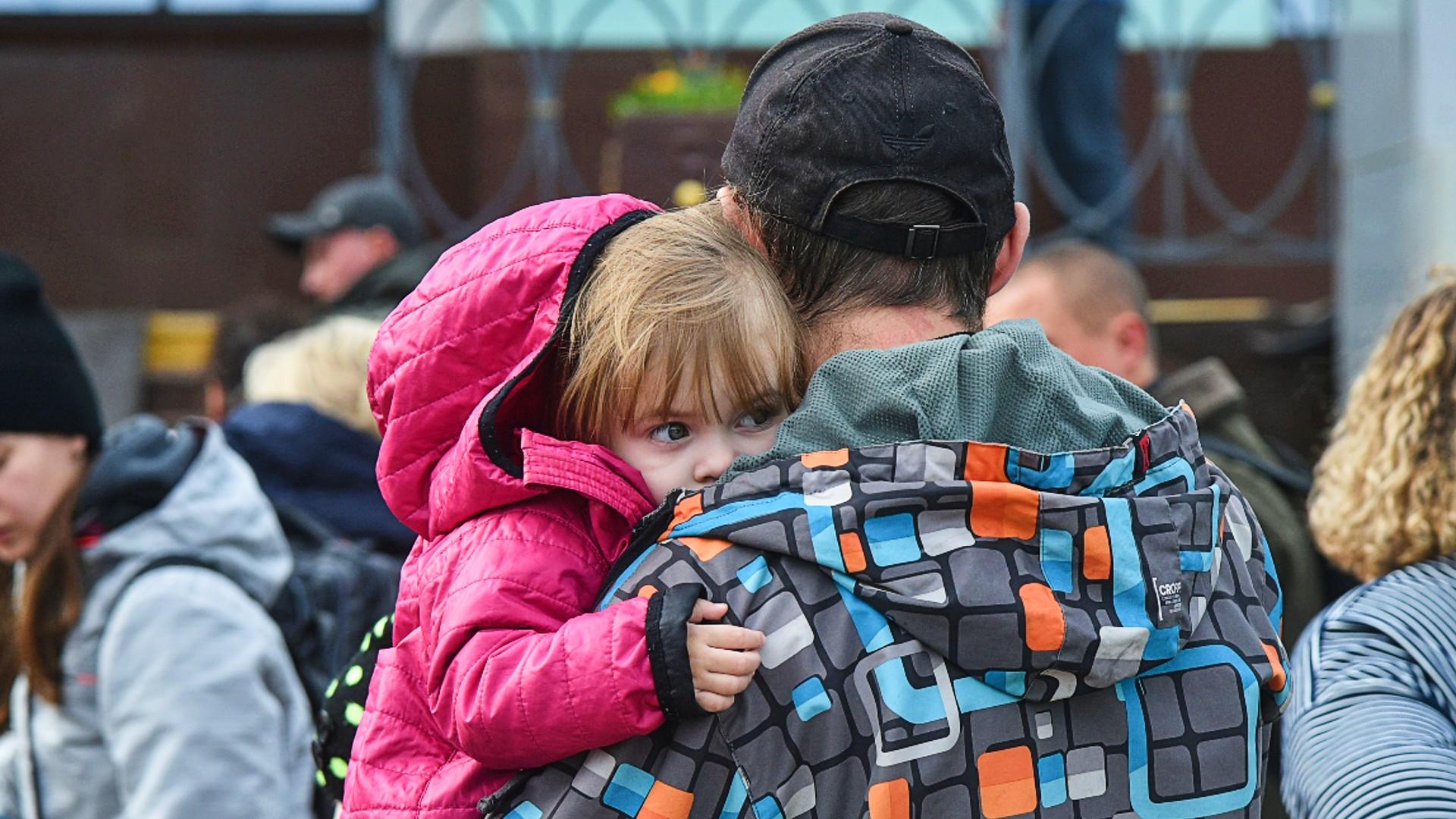
Evacuees from Kherson region arrive in Crimea
Russia says it has completed its operation to move at least 70,000 civilians out of the occupied Ukrainian city of Kherson - what Kyiv calls forced deportations.
A Russian militia commander said its troops were preparing Kherson for defence, ahead of an expected battle with advancing Ukrainian forces.
The region was one of four areas declared annexed by Vladimir Putin last month - though Moscow does not have total control of any of them.
Kherson city, in Ukraine's south, was captured shortly after the beginning of the Russian invasion - but recently Ukrainian forces have recaptured nearby territory, with the front line some 30km (18 miles) from the city, according to officials.
Meanwhile, Russia said it had mobilised 300,000 reservists, the target it had set for boosting troop numbers.
Defence Minister Sergei Shoigu said 41,000 of those called up had already been deployed to the battlefield in Ukraine.
The minister's comments come amid growing public anger across Russia over the mobilisation drive, and widespread media reports that many of those called up are poorly trained.
In his video address late on Friday, Ukrainian President Volodymyr Zelensky said Russia's mobilised soldiers "are so poorly prepared and equipped, so ruthlessly used by the command" that Russia "may soon need a new wave" of mobilisation.
He also accused Moscow of trying to turn the Kherson region "into a zone without civilisation" by dismantling the entire healthcare system and other critical infrastructure there.
Read more here:


'Germany's good years are over'
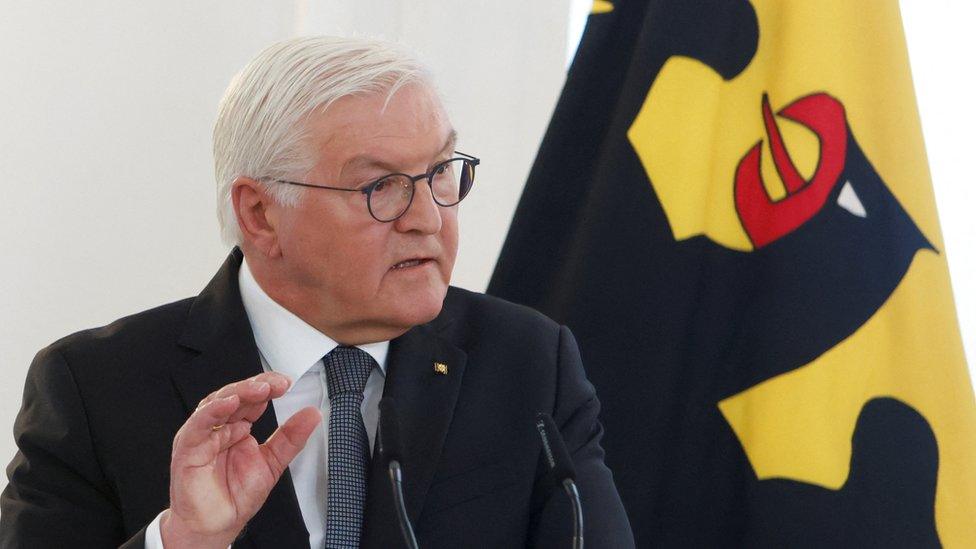
The German president admitted his previous efforts to engage with Russia had failed
Germans believed they were beyond an age of insecurity and violence in Europe - but those days are gone, the country's President Frank-Walter Steinmeier has said.
"Harder years, tough years are coming. The dividends of peace have run out. For Germany, an age is beginning in which we must brave the headwinds," he told the nation in a televised address.
Mr Steinmeier added that while the state would help poorer people with the rising cost of living, everyone would have to make sacrifices.
He was also critical of his own past beliefs about Moscow: namely that peace could be achieved through trade and energy links. February's invasion "marked the final failure" of those efforts, he said.

A Norwegian spy story
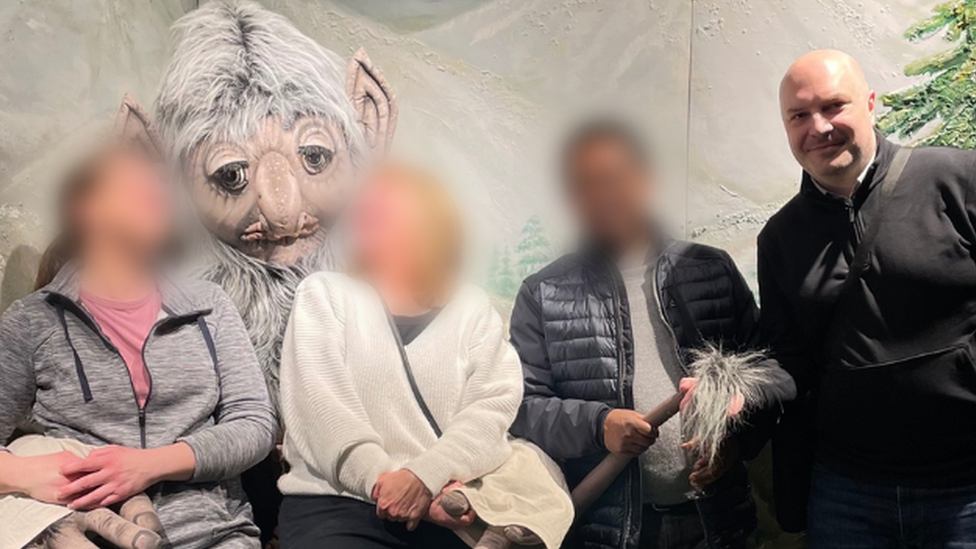
The suspect (R) is accused of posing as a Brazilian academic in Norway
Security services in Norway have charged a university lecturer with gathering illegal intelligence and claim to have uncovered his real identity.
The suspect had posed as a Brazilian academic, but officials claim he is a Russian spy.
He has been named in Norwegian media as Russian national Mikhail Valerievich Mikushin.
The suspect's lawyer has said he denies the charges.
Earlier in the week, Norwegian officials said the man had a Brazilian passport and had worked as a researcher at the University of Tromso in the north of the country since 2021.
Christo Grozev of the investigative journalism group Bellingcat believes the man is a colonel linked to Russian military intelligence, the GRU.

Chechen leader admits 'big losses'
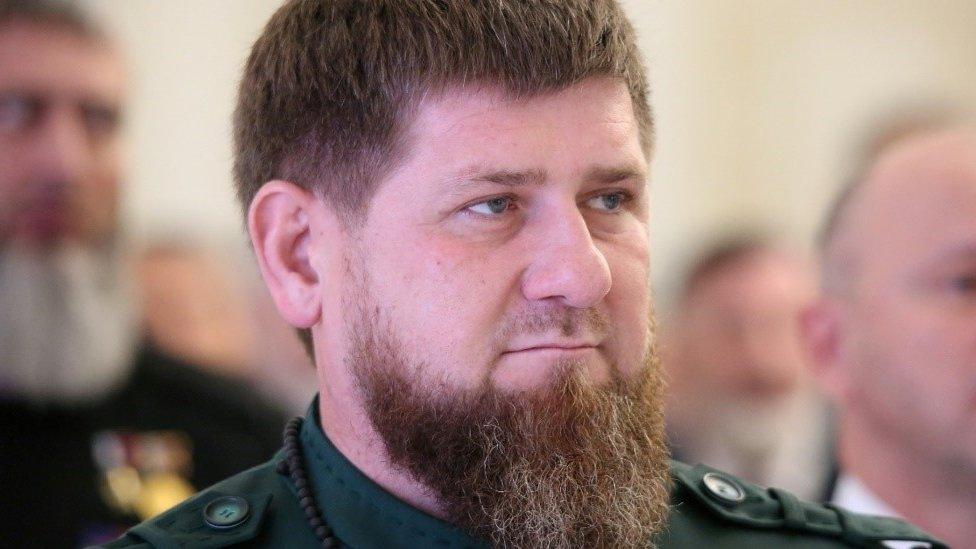
Chechen leader Ramzan Kadyrov - a hard-line backer of the war and close ally of Vladimir Putin - has admitted one of his units suffered "big losses" in Ukraine's Kherson region this week.
On messaging app Telegram, Kadyrov said 23 fighters had been killed and 58 others wounded by an artillery attack in the southern Ukrainian region.
It is rare for the Chechen leader to admit to losses, though he also claimed his forces had killed many more Ukrainians.
The southern Russian republic Chechnya has been ruled by Kadyrov since 2007, when he was named the region's president by Vladimir Putin.

War in Ukraine: More coverage
ANALYSIS: Who is winning the war in Ukraine?
ON THE GROUND: What weapons are being supplied to Ukraine?
READ MORE: RFull coverage of the crisis

Related topics
- Published28 October 2022
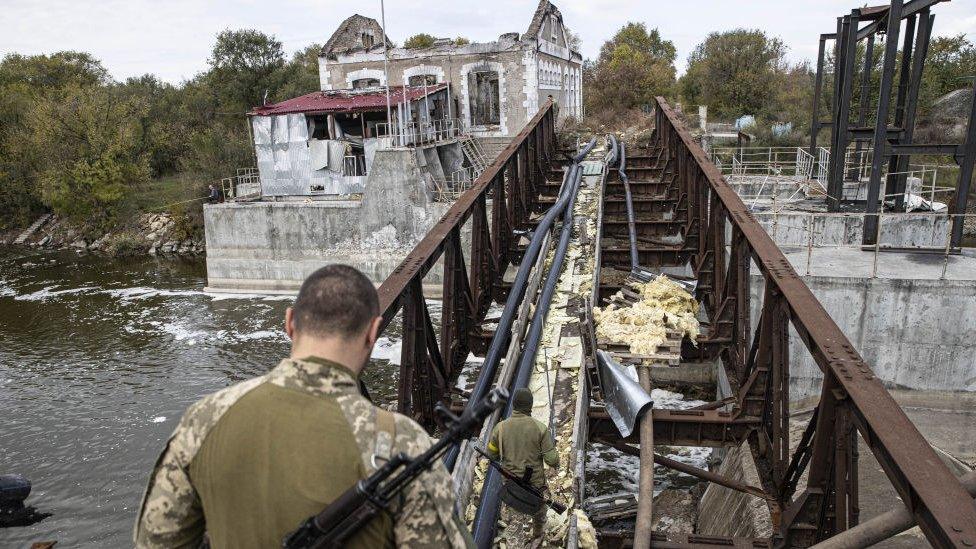
- Published28 October 2022
